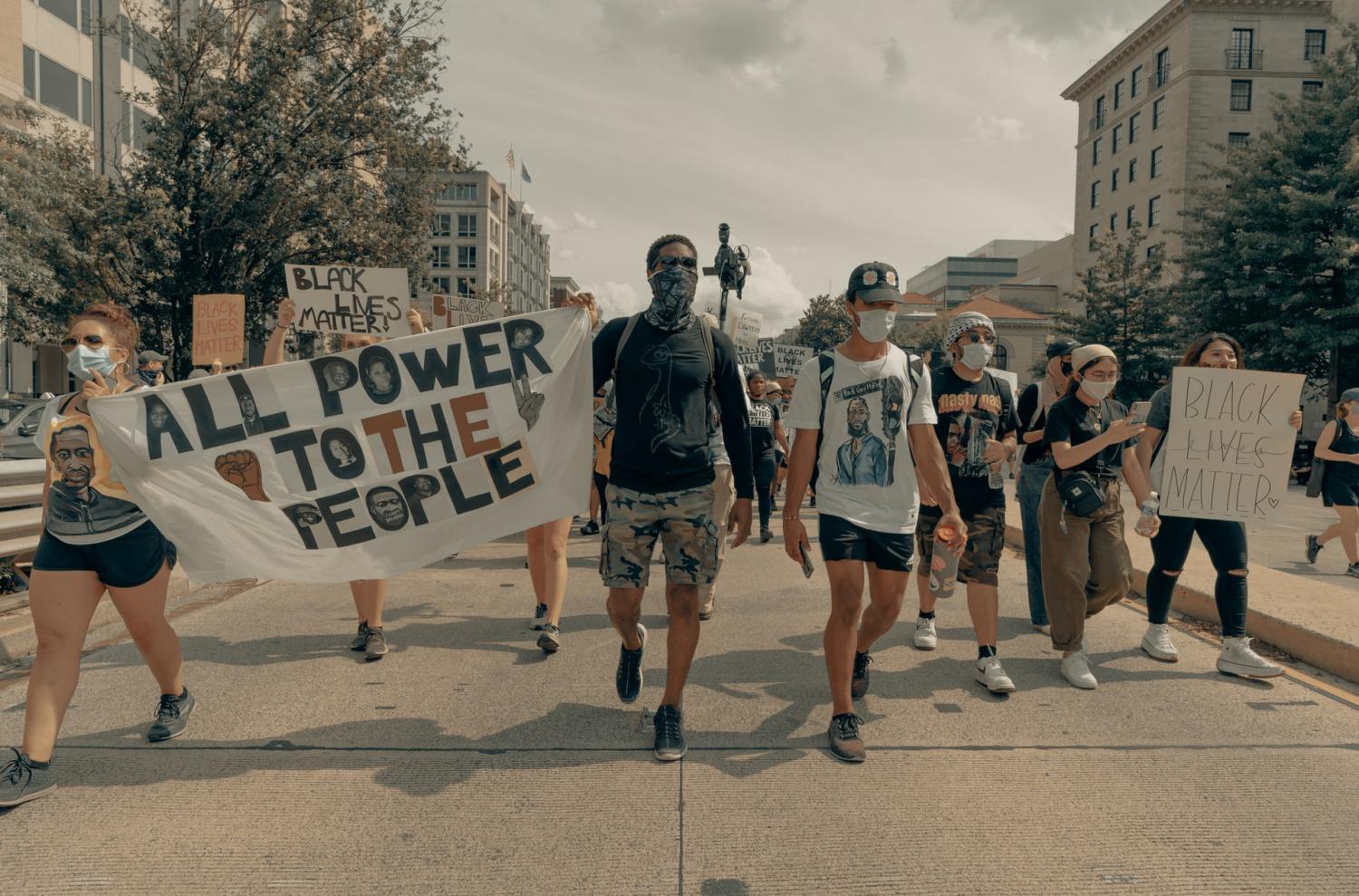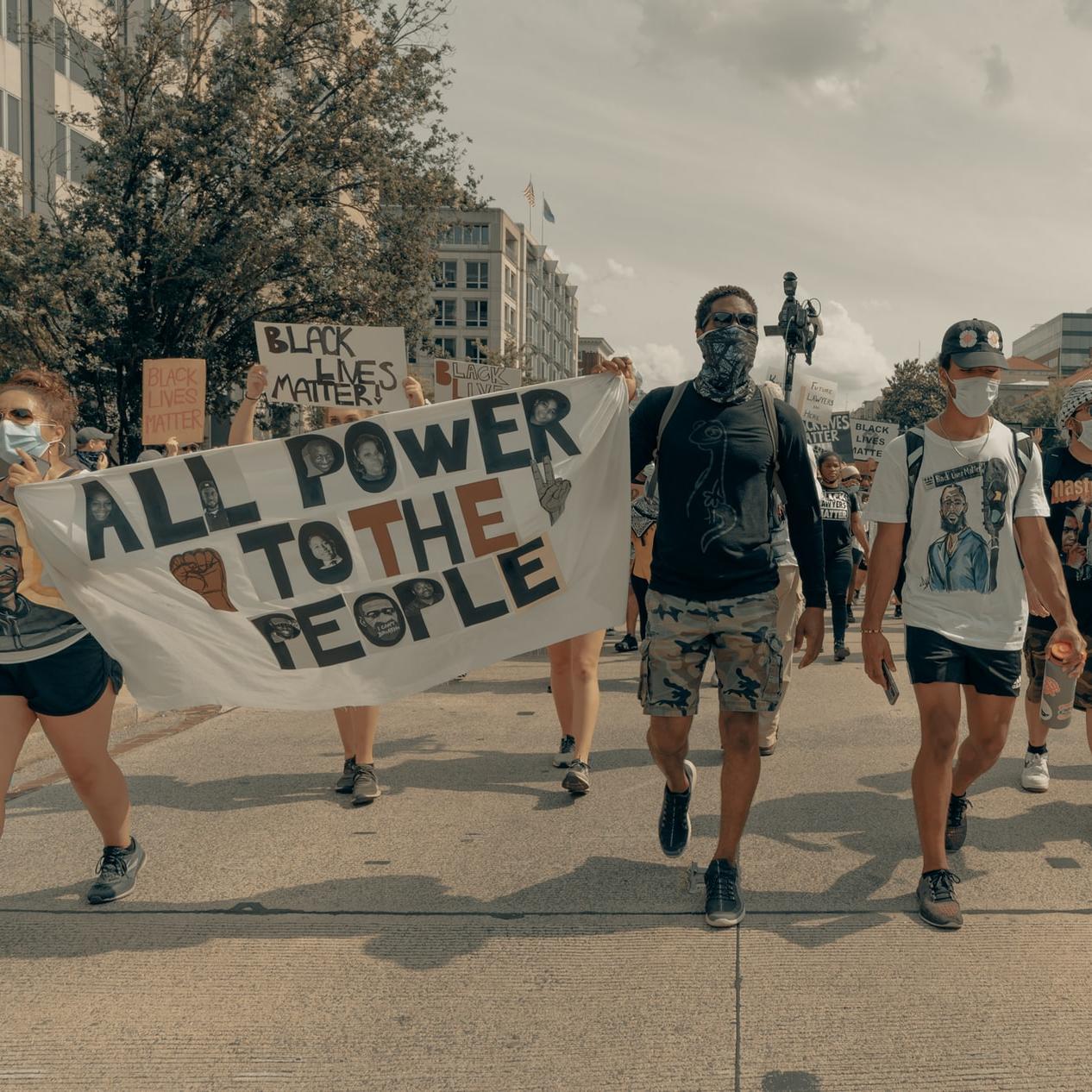Business Responds to Watershed Supreme Court Ruling on LGBTQ Rights


In a surprising 6-3 decision yesterday, the U.S. Supreme Court ruled that a federal civil rights law dating back to the 1960s also applies to LGBTQ workers. Even more stunning was the fact that Associate Justice Neil Gorsuch, an advocate of “textualism,” the belief that laws are based on words alone, not the intention of those who draft them, wrote the majority opinion.
Gorsuch’s interpretation in Bostock v. Clayton County was quite simple in laying out the case against discrimination based on sexual orientation:
“Consider, for example, an employer with two employees, both of whom are attracted to men. The two individuals are, to the employer’s mind, materially identical in all respects, except that one is a man and the other a woman. If the employer fires the male employee for no reason other than the fact he is attracted to men, the employer discriminates against him for traits or actions it tolerates in his female colleague.”
“Or take an employer who fires a transgender person who was identified as a male at birth but who now identifies as a female,” continued Gorsuch in explaining why the same rights apply to transgender workers. “Again, the individual employee’s sex plays an unmistakable and impermissible role in the discharge decision.”
Defendants in the Bostock case argued that Title VII of the Civil Rights Act of 1964 did not consider LGBTQ citizens when it banned employee discrimination based on race, color, religion, sex or ethnicity. And considering how the LGBTQ community in the U.S. lived in the shadows 56 years ago, it’s true that law’s authors hardly considered the rights of anyone gay, queer or transgender. But Gorsuch’s literal translation of the Civil Rights Act added to what has been almost two decades of federal courts chipping away against any LGBTQ discrimination across all of society.
Bostock is indeed a landmark ruling, one that should give LGBTQ citizens a huge sigh of relief, especially when considering the current economic climate due to the novel coronavirus pandemic. But as Ian Millhiser of Vox pointed out, the ruling is not entirely watertight. “That’s because the Court is also considering whether to grant employers with religious objections to LGBTQ people an exemption from anti-discrimination laws,” Millhiser wrote. “So the fate of individual LGBTQ workers remains unclear — at least for employees with bosses who object to LGBTQ people on religious grounds.”
Companies, therefore, should still feel compelled to communicate that they will ensure their LGBTQ employees will feel welcome, and protected, from any discrimination in the workplace.
Business groups were quick to applaud the ruling.
“Coming in the middle of Pride Month, this decision is a welcome blow against intolerance that makes America and our economy fairer and more inclusive, which will ultimately make us more successful,” said David Levine, president of the American Sustainable Business Council (ASBC), in an emailed statement to TriplePundit. “That is the central mission of ASBC and the nearly 250,000 businesses we represent. We were proud to join the arguments on behalf of this case and we are thrilled at the outcome.”
ASBC had filed an amicus brief with the Supreme Court in support of LGBTQ employees.
Technology companies, including Apple, Facebook and Microsoft, also showed their support for the Supreme Court’s ruling, noted by CEOs tweeting their reactions shortly after the ruling was made public.
Corporate organizations including the pro-business U.S. Chamber of Commerce, as well as the Society for Human Resource Management (SHRM), were also supportive of yesterday’s watershed decision. “The ruling provides much needed clarity and finality on the interpretation of Title VII's protections from the Court giving HR professionals clear guidance and a greater opportunity to create a world of work that works for all,” a SHRM press statement reads.
Companies that have been proactive when it comes to securing LBGTQ rights now know they have been on the right side of history. For organizations that have been slower to embrace a more inclusive work environment, or have supported efforts to resist or repeal such protections in the workplace, the Human Rights Campaign has this simple message: “No one should be denied a job or fired simply because of who they are or whom they love.”
Image credit: Matt Popovich/Unsplash
Sidewalk Labs’ Failure and the Future of Smart Cities


In early May, Sidewalk Labs’ ambitious plans to build a sustainable utopia in the heart of Quayside, Toronto sputtered to a sudden and unceremonious end. News of the dropped project first broke when the company’s CEO Daniel L. Doctoroff took to Medium to explain that the economic impact of COVID-19 had made it financially impossible to continue the resource-intensive project.
“For the last two-and-a-half years, we have been passionate about making Quayside happen,” Doctoroff wrote. “But as unprecedented economic uncertainty has set in around the world and in the Toronto real estate market, it has become too difficult to make the 12-acre project financially viable without sacrificing core parts of the plan we had developed together with Waterfront Toronto to build a truly inclusive, sustainable community.”
Doctoroff tried to soften the news by pointing out that the urban innovation and green-living concepts Sidewalk Labs developed during its time at Quayside could be applied further down the road, when another company takes on the challenge of building a smart city. But, while not technically wrong, his point feels almost hollow in the face of the project’s failure. To borrow a quote from Curbed’s Alissa Walker, “If a well-funded Google subsidiary can’t build affordable, low-emission housing, who can?”
When viewed through a pessimistic lens, Sidewalk Labs’ exit seems to suggest that building a genuinely tech-forward, green-minded community is, at least for now, an impossibility -- and perhaps it is. But I would argue that just as the concepts developed during the now-defunct project can be applied to other smart city initiatives, so too can the project’s successes and controversies inform the approach that builders use in the future. If we take a retrospective approach, Quayside’s rocky history can provide a paint-by-numbers guide of what to (not) do when planning a sustainable urban utopia.
Providing Context: What Was Sidewalk Toronto?
It’s worth outlining the broad strokes of what Sidewalk Labs hoped to achieve in Toronto. When the company first published its detailed plans in June of 2019, the project was heralded as “a neighborhood built from the internet up [...] the most innovative district in the world.”
If plans had come to fruition, the neighborhood would have deserved the superlatives. Sidewalk Labs intended to construct ten new mixed-use buildings -- encompassing thousands of residential units -- out of mass timber. This material is more eco-friendly, quicker to produce, and cheaper than conventional construction materials. Besides the immediate benefit of increasing affordable housing stock, the construction project could have provided an industry-changing blueprint of how to make affordable green housing at a profit.
Other notable intentions include reducing greenhouse gases by 89 percent, implementing a pneumatic trash collection system, designing a street system that would limit car use in favor of walking and biking, and installing public wifi. The new community would also have an extensive network of sensors that would have continuously collected urban data to help guide resource-efficient housing and traffic decision-making.
According to reporting from the Verge, these and other developments would have helped create one of the largest eco-friendly communities in North America, extend no less than 44,000 new jobs to the Quayside area, and generate up to $4.3 billion in yearly tax revenue. Sidewalk Labs itself planned to invest $1.3 billion in the project and anticipated drawing up to $38 billion in private-sector investments within two decades.
The benefits are evident. Sidewalk Toronto would have set a replicable example of what cities can do to boost affordable living and lessen their carbon footprint -- a worthy goal, especially given the world’s continued spiral into a climate crisis. So, how could Sidewalk Labs let the project go so entirely?
Despite what Doctoroff and other Sidewalk Labs representatives say, COVID-19 probably wasn’t the sole reason behind the collapse, though it probably was the straw that broke the proverbial camel’s back. Instead, the forces that drove Sidewalk Toronto to failure were interpersonal: a lack of trust and transparency.
Lessons Learned: Sidewalk Toronto Failed Due to (a Lack of) Trust
“The city is literally built to collect data about its residents and visitors,” the Atlantic’s Sidney Fussell wrote in a scathing 2018 critique of Sidewalk Toronto.
He isn’t wrong. If the Sidewalk Toronto project had come to fruition, it would have installed occupancy sensors into every home in the community to adjust temperature and minimize energy use throughout the day. It would have established an expansive network of cameras and used AI to analyze traffic patterns, monitor traffic speed, and predict collisions. Even the streets would collect data and respond accordingly; “smart” roadways would have used LED lights to dynamically change lane width to accommodate usage by different types of commuters.
These innovations promise safety, convenience, and energy-efficiency benefits -- and a distinct host of privacy concerns. According to The Atlantic, one former advisor and privacy expert quit the Sidewalk Toronto project after becoming concerned that Google would use the data its sister company collected to expand existing profiles of their online activity. The advisor left after project leaders “refused to unilaterally ban participating companies from collecting non-anonymous user data."
Sidewalk Toronto’s fall prompted some citizen groups to celebrate their advocacy efforts. “This outcome is a testament to the principled and courageous stance taken by citizens to protect Toronto from Google’s corporate takeover,” Thorben Wieditz, a representative for Block Sidewalk, told reporters for Curbed.
The future of smart cities and Sidewalk Labs
However, proponents of the project have long been frustrated by the implication that Sidewalk Labs is driven by capitalistic greed. “We’re not going to gather up all Torontonians’ data and sell it, we’re not building Sensorville,” Micah Lasher, the head of policy and communications at Sidewalk Labs once commented.
We face a Catch-22. Companies like Sidewalk need to gather data to create a green, tech-forward utopia that can provide comprehensive environmental and community benefits to residents -- and yet, those residents are unable to trust the intentions driving such surveillance enough to allow the project to proceed. Without trust, sustainable communities like Sidewalk Toronto will never come to fruition.
So, what does this tell us about future smart city initiatives? From the get-go, project leaders need to address trust and transparency. They must adopt a near-nonprofit perspective that prioritizes social gain over profits to avoid accusations of corporate greed, and involve advocacy groups in their decision-making processes. Residents must understand how their data will be used, who has access to it, and what they can do to maintain their privacy in a space where data collection is a necessity. It seems an obvious truth, but it bears saying: when you build a smart city, you need to think as much about the residents as you do about the technology that powers it.
Image credit: Sidewalk Toronto
Fight Homelessness By Bridging the Gap Between Shelter and Housing


The U.S. has a shortage of around 7 million affordable housing units for renters whose household incomes fall below the poverty line, according to the National Low Income Housing Coalition. As Americans struggle to find affordable housing, homelessness is on the rise across the country. On any given night, more than 560,000 Americans find themselves homeless, per a 2019 point-in-time count. While many stay in shelters intermittently, people experiencing homelessness often find the gap from temporary to permanent housing to be too wide to jump. This leads to a vicious cycle and multiple returns to shelters.
This scenario becomes even more dangerous in light of the novel coronavirus pandemic. Those facing homelessness already experience infectious diseases at higher rates than the general population, research from Johns Hopkins University reveals. “This should give government officials and health providers cause for concern” with regards to the coronavirus, Michael Cousineau, a professor of clinical preventive medicine at the University of Southern California, recently observed. As governments seek to slow the spread, providing safe housing options will be critical.
Bowery Residents' Committee (BRC), one of New York City's leading nonprofit organizations providing housing and services to thousands of vulnerable residents, has had a firsthand view of the challenges homeless populations face in attaining safe and stable housing. In response, it developed a new kind of solution to supply more shelter beds for New Yorkers experiencing homelessness and more affordable housing units for low-income renters: In 2018, BRC and a group of partners opened a single development which includes a shelter with 200 beds as well as 135 affordable housing units, the first combined development of its kind in the country.
“It’s been a success,” Muzzy Rosenblatt, BRC’s president and CEO, said of the Reaching New Heights transitional housing shelter and the Apartments at Landing Road affordable housing development in the Bronx. Among the indicators the development is having an impact on New Yorkers in need, Reaching New Heights “has among the lowest rates of absence without leave in the shelter system,” he told TriplePundit.
For BRC, with decades of experience as a nonprofit in New York City, shifting to the role of owner and operator of a building was a big change. Traditionally, the organization runs shelters, rents space in existing buildings, and helps low-income residents pay rent. What drove the change was the realization that it could make a greater impact with the same budget by reducing the amount it paid in rent to landlords.
“We were always looking at our finances,” Rosenblatt explained. “We wanted to make sure for every dollar we spend, we get maximum value.” He and his team noticed that rent was BRC’s second largest expense, after labor, and figured that if they could reduce that, the organization could serve more people.
Still, BRC does not have an endowment or other capital funds it could use to finance an initiative like Reaching New Heights and the Apartments at Landing Road. It needed partners from across the nonprofit, government and private sectors, and found one in Capital One.
This unique initiative is just one of many that the financial institution invests in through its Community Finance team. “We believe that everyone deserves an affordable home to live in,” said Desiree Francis, head of Capital One’s Community Finance team. “Homelessness is such a major issue in the markets and cities where we live and work.”
BRC’s combined shelter and housing model caught the attention of Francis and her team. “One of the things that struck a chord with me was that there were two things happening that would provide benefits,” Francis told us. “We know that there is a need for more shelter space and we know that individuals who make minimum wage are often priced out of affordable housing, and in this development, we had both of those being covered.”
Capital One brought financial expertise to the partnership, which proved valuable for an initiative that had never been done before. In addition to putting shelter beds and affordable housing under the same roof, BRC leveraged multiple funding streams from the city and federal government, as well as private partners, to bring the development to fruition.
The model it developed is simple in theory, but complicated in practice. New York City funds BRC's Reaching New Heights shelter at the same rate, and with the same funding, that it uses to support all organizations operating shelters. However, while a private property developer might profit from the rent paid by the city to lease shelter space, BRC reinvests any surplus into subsidies for extremely low-income housing at the Apartments at Landing Road. BRC has recaptured $400,000 of shelter surplus and reinvested it in extremely low-income housing.
For Capital One, the qualitative impact of affordable housing investments are meaningful — it backs over 10,000 units a year — but it's also the personal stories that matter to Francis. “For me, one of the things that I find most rewarding is when the properties are open and you can hear the stories of the residents, and how having access to affordable housing has transformed their lives and opened up opportunities in other areas,” she told us. “Housing is a foundation to build upon.”
Chances are that affordable housing will become an even bigger issue as the U.S. recovers from the ongoing novel coronavirus pandemic and the corresponding economic impacts, Rosenblatt said. He believes we’ll need more shelters and affordable housing units and hopes this model pioneered by BRC can scale and adapt to other situations around the country.
“We’re going to need to find vehicles and ways to house people in the months and years ahead,” he told us. “We now have a model that Capital One and others can replicate and make an impact in a way that our country needs.”
This doesn’t have to mean putting shelters and housing together every time, he explained: Similar developments could add affordable residential units to buildings that house public schools, local health centers or other community resources, which can serve to subsidize housing prices.
As we move forward into an uncharted economic and social future, innovative solutions will be more necessary than ever to ensure we don’t leave the most vulnerable in society behind. BRC and Capital One found a way to improve the lives of hundreds — and created a model that gives organizations everywhere an opportunity to do even more.
This article series is sponsored by Capital One and produced by the TriplePundit editorial team.
Image credit: Tierra Mallorca/Unsplash
Investors Backed by $10T in Assets Tell Companies to Disclose Their Environmental Impact. Now.


Last week, over 100 global investors, which between them manage more than $10 trillion in assets, announced they would join forces with CDP to exert more pressure on companies they say are generating the most environmental impact worldwide.
Within this coalition’s crosshairs is a who’s who of some of the world’s most recognizable brands, including Domino’s Pizza, ExxonMobil, Facebook, Rolls-Royce and Volkswagen.
“The importance of investor engagement to drive disclosure cannot be overstated,” said Emily Kreps, global director of capital markets at CDP. “Climate change, water security and deforestation present material risks to investments, and companies that are failing to disclose their impact risk trailing behind their competitors in their access to capital.”
Allianz Global Investors, HSBC Global Asset Management, Nuveen and Trillium Asset Management are among the investment firms that say they are aligned with CDP’s latest Non-Disclosure Campaign.
CDP argues that the push for greater disclosure is necessary as short- and long-term business risks such as climate change, deforestation and water scarcity are now even more material to companies than they had been in the recent past. This coalition points to a study the World Economic Forum commissioned earlier this year, the conclusion of which said that threats such as extreme weather, the failure of climate action plans, and the loss of biodiversity could result in “economic confrontations” and “domestic political polarization.”
Of course, we are seeing those aforementioned forces at play now due to the novel coronavirus pandemic and protests demanding racial equity. It’s clear, however, that the massive global problems wreaking havoc are not separate challenges but in fact are intertwined. “The recent public health crisis has highlighted that business resilience and adaptability to external shocks are critical indicators of a business’ strength,” said CDP.
In fairness, non-disclosure to CDP doesn’t necessarily mean a company is dropping a ball on the climate action front. “Sustainability reporting fatigue” has long been a topic of discussion in this space. On that point, CDP has noted that close to a fifth of the companies on its current target list now report to the organization on one theme, such as climate, forests or water.
The argument from CDP and these investors, however, is that these companies aren’t disclosing data related to a risk that is material to their business. On that point, such companies that can expect to receive a CDP love note to that effect include Adidias, AccorHotels, Costco, Gap Inc. and Tesco.
Image credit: Martin Ceralde/Unsplash
Microplastics are Snowing and Raining Down in U.S. National Parks


Over the past several years, plenty of consumer goods and personal care companies, including Johnson & Johnson, L’Oreal and Unilever, have pledged to stop or curb the use of plastic microbeads in their products. Nevertheless, years of consumers embracing exfoliation products, in addition to the the increased number of garments made with synthetic fabrics, have left a messy and potentially harmful legacy. While we generally associate the surge of microplastics with impacts on ocean health, it turns out other ecosystems are taking a hit, too.
Last week, a study in the journal Science concluded that microplastics are prolific in national parks and other public lands located across the western U.S. Led by a professor at Utah State University, the study involved the use of buckets to collect samples during days with and without any precipitation. The research team determined that days with rain or snow resulted in the collection of larger plastic particulates that were most likely from cities in close range of these U.S. parks. But it turned out that on days marked by dry weather, the microplastics found were far smaller than those accumulated during days of rain or snow, but the amount collected was far more numerous. The researchers’ analysis suggests that the microplastics likely traveled long distances before ending up in the parks.
The Utah State project builds upon many scientists’ beliefs that the use of microplastics is a global problem, even if some local regions and municipalities are more aggressive than others in decreasing the use of plastics. “Carried by the wind, dust particles from places such as the Sahara Desert can float halfway around the world before settling to the ground,” wrote Scientific American’s Scott Hershberger.
The problem should raise eyebrows as the researchers found that 132 particles per square mile a day are landing within national parks and other protected areas. Annually, that daily number accumulates to over 1,000 metric tons of microplastics settling across protected lands throughout the western U.S. “Plastics could be deposited, readmitted to the atmosphere, transported for some time, deposited and maybe picked up again,” Janice Brahney, the lead professor of this research project, told the Guardian. “And who knows how many times and who knows how far they’ve traveled?”
The study comes at a time when there’s heightened concern about the rising consumption of single-use plastics during the novel coronavirus pandemic and as the recreation industry is preparing for outdoor areas to reopen as much of the U.S. emerges from months of lockdown. Local groups have teamed up with public lands officials to do what they can to eliminate plastics from national parks (such as efforts within Yosemite National Park, shown above), but this report makes it clear the problem is much more global in scope.
Furthermore, these researchers’ conclusions about the spread of microplastics is a reminder that all industries have to lead and find ways to curb their plastic consumption. That goes for the outdoor recreation industry, which often basks in its ethos of environmental sustainability and responsibility. While this study concluded that clothing made out of synthetics is the largest contributor to microplastics shedding into our natural environment, camping equipment also has a role. The home improvement and personal care industries also make products that add to the growing microplastics problem.
Image credit: Leon Kaye
Tech Companies Lock the Barn Door on Facial Recognition, But the Horses are Already Out


IBM set an example for other leading tech brands earlier this week when CEO Arvind Krishna announced that the company would drop its facial recognition business over the issue of race and gender bias. However, scores of other companies are active in the field aside from the well-known brands regularly making headlines. Unless legislators act, IBM’s announcement will have little impact on the use of facial recognition technology by both public law enforcement agencies and private companies.
Racial bias in facial recognition technology
Modern facial recognition technology is relatively new, and its use is almost entirely unregulated, despite its potential for negative, life-changing impacts on individuals as well as broader implications for civil liberties.
In earlier, pre-Internet days, facial recognition researchers had to undertake the tedious process of collecting informed consent from people whose photographs they used. As a result, earlier datasets consisted of just a few hundred people.
To a growing degree, research on facial recognition technology now involves gathering millions of photographs from social media sites and other online sources.
It would seem logical that a much larger dataset would yield more accurate results. However, last year the National Institute of Standards and Technology surveyed 189 facial recognition algorithms from 99 different vendors representing a majority of companies in the field. NIST found both race- and gender-based inaccuracies, with the most significant error rate having an impact on Black women.
A false positive can simply be a matter of convenience — your face won’t unlock your phone, for example.
However, in law enforcement, security and immigration applications, a false positive could change the trajectory of a wrongly identified person’s life, targeting them for additional surveillance and investigation, arrest, legal proceedings, incarceration, family separation or deportation.
IBM tried to fix the bias problem in 2019
The NIST researchers were careful to note that not all of the 189 algorithms in their study showed significant bias. “Different algorithms perform differently” is the takeaway from their study.
Nevertheless, IBM has been among those acknowledging an overall bias problem in the field. In an in-depth report last year, Olivia Solon of NBC News described how IBM scoured a database released by the photo-sharing site Flickr to collect a set of approximately 1 million images, which it then pitched to researchers as a bias-reducing tool.
IBM’s collection was only one among many others used by facial recognition researchers, in academia and in the private sector. Nevertheless, the backlash was furious as IBM’s high profile underscored broad issues of privacy, civil rights, consent and bias.
As Solon noted, the episode also drew attention to IBM’s development of other tools.
“Civil liberty advocates and tech ethics researchers have…questioned the motives of IBM, which has a history of selling surveillance tools that have been criticized for infringing on civil liberties,” she wrote, referencing the company’s camera and video tools that identify skin tone and ethnicity.
In 2020, IBM attempts another fix
That negative attention may have sensitized IBM to the relationship between racial bias and broader issues of civil rights, personal privacy, and overreach by law enforcement agencies that have been brought to the forefront by waves of protest following the death of George Floyd at the hands of a Minneapolis police officer over a $20 bill.
Last year’s experience may have also prompted IBM to assess its business through the lens of brand reputation, and its ability to recruit top talent as a more diversified generation of youth enters the job market.
In addition, IBM probably saw the writing on the wall. Public pressure for a legislative fix has already begun building in recent years, as startups began promoting their technology willy-nilly to immigration and law enforcement authorities as well as private-sector companies.
From a brand reputation perspective, Krishna’s announcement was a pre-emptive move aimed at positioning IBM at the forefront of legislative reform.
In fact, when Krishna announced that IBM would drop facial recognition from its corporate profile, he also wrote a 900-word letter to Congress that detailed concrete action steps for reform.
Krishna pledged that IBM would work with lawmakers in support of federal regulations on police conduct, including the linkage of federal aid to transparency in reporting use of force.
He also advocated for a national policy on the use of technology in law enforcement, including body cameras and data analysis, aimed at increasing transparency and creating a system of accountability.
Brand reputation and the next generation of top talent
Above all, Krishna zeroed in on the talent recruitment issue.
“Expanding opportunity — training and education for in-demand skills is key to expanding economic opportunity for communities of color,” he wrote.
“At IBM, we see an urgent demand for what we call “new collar” jobs, which require specialized skills but not necessarily a traditional 4-year college degree. Such jobs can still be found today in fast-growing fields from cybersecurity to cloud computing,” he added.
As Krishna underscored in the letter, IBM actually has developed a school model to address that very concern.
Called P-TECH, the model has enrolled approximately 150,000 students globally over the past decade with a focus on communities of color. P-TECH provides public high school students with a pathway to earning an associate’s degree, leading to employment in a specialized field, while avoiding student debt.
IBM has already begun recruiting employees through P-TECH, and Krishna urged Congress to scale up the model nationally.
As a corollary, Krishna also urged Congress to expand the Pell Grant program to include funding for specialized training in non-college or “New Collar” jobs, and to make that funding available for incarcerated persons.
Krishna concluded the letter by firmly cementing IBM’s brand reputation.
“IBM wants to help advance this nation’s pursuit of equity and justice and we stand ready to work with you to advance policies that will help unify our country and advance our national purpose,” he wrote.
The prospects for federal action are slim to none, but Krishna succeeded in staking out the high ground for IBM on the media stage.
As for other high profile tech companies, it is difficult to see technology giants drop out of this space. So far, leading technology companies — including Apple, Google, Facebook and others — appear to be satisfied with throwing dollars at the problem rather than engineering any meaningful change into their business. But the tides could change rapidly – after all, a few days after its employees protested its business ties with law enforcement agencies, Microsoft announced yesterday that for now it would not sell its facial recognition technology to police departments.
Image credit: Bernard Hermant/Unsplash
What’s in a Name? For This Company, A Powerful Black Lives Matter Message


You may not have heard of Moss Gathering LLC, a Las Vegas-based company. And you may not be familiar with BabyNames.com unless you happen to have a child on the way. But a simple gesture the website made earlier this week ranks among the more powerful Black Lives Matter messages made over the past several days.
There really isn’t much explanation needed. Right now, when you visit BabyNames.com, it’s unmistakable to see the impact that needless violence has had on countless Black families, their friends and communities for decades.
All the people running BabyNames.com did was design a simple black text box with the names of Black citizens who died due to race-related violence. “Each one of these names was someone’s baby,” reads the opening caption.
It’s hard to peel your eyes away. Emmett Till. Medgar Evers. Dr. Martin Luther King, Jr. Trayvon Martin. Philando Castile. Breonna Taylor. Ahmaud Arbery. George Floyd.
We’ve long said here on TriplePundit that when companies want to do good in the community at any level, they can start by harnessing the people and resources they already have at hand. Whether it’s a tech or medical company leveraging their people to help with STEM education efforts, a consumer goods giant donating their products at times of dire need, or a distillery using their factories to make hand sanitizer, making a difference isn’t really that complicated if a company, its leaders and employees are willing to divert the time and resources necessary to make progress happen. BabyName.com’s quick redesign is Exhibit A of how you can best take a stand or show allyship with whatever limited resources are available at hand.
BabyName.com’s decision means even more when you research some of these names. Philando is Greek for “friend of man.” Ahmaud’s Arabic origins are defined as “most praiseworthy.” Breonna means “high or noble,” which is apt because she was reportedly highly devoted to her job as an EMT and would work 15-hour shifts.
Do check it out. It’s hard to take your eyes off it.
Screenshot via BabyNames.com and Nathan Dumlao/Unsplash
Environmental and Justice Activists Need to Join Forces


The environmental movement can learn from those who come from a tradition of resistance and have organized their struggle in movements like Black Lives Matter and Idle No More, founded by First Nations. The protests enveloping our country today are seeded by centuries of injustice and violence, by underlying power imbalances and inequalities that have never been truly addressed. The founders of these social movements knew then and now that they cannot combat violent oppressors through pure persuasion. So they resist.
Resistance inspires. Defiance in the face of a violent, oppressive culture can inspire another person’s defiance. Even when an uprising is only beginning, when the path forward is unclear, it is essential to resist. All together. The goal: to defeat a system fundamentally, historically, and intentionally based on mass exploitation in the interest of profit for a privileged few.
We cannot expect to win long-term human rights from societies based on violent oppression, flagrant ecological abuse, and silence about the links between environmental abuse, discrimination, and development. The global exploitation of the environment and the poor is accelerating even as the elite grow wealthier than ever before. The ecosystems that support life — for our own survival and for the countless species going extinct — are systematically poisoned, scorched, and gutted bare.
Environmental intersectionality recognizes that racism, classism, sexism, and other oppressions are interlinked with climate and environmental problems. This approach seeks to bring egalitarianism by ending the isolation of those separate efforts. The goal is to combat a power structure that is increasingly concentrated in a ruling class through a system of racism, patriarchy, ecocide, and violence. Throughout history, power has functioned by dividing and ruling, pitting groups against each other. We can take a lesson from this, or continue to be defeated by it. We win or lose together.
Environmentalists and justice activists cannot stay isolated in their movements. To be effective at combating climate change and countless other social and environmental injustices, we must acknowledge the links between the abuse of nature and people, and devise strategies to protect the planet, to resist its demise – even when doing so is frightening. Especially then. Ultimately, resisting mass exploitation on all fronts is the only thing that will make us safer.
For many — especially people of color — the impacts of climate change and the degradation of environmental harm are not a future concern. It is life or death, and it’s happening now. If we want to reverse the losses, we need to begin to speak honestly to each other about the long history of abuse that has led to the unrest, rage, and grief that we feel today. We need to confront how power works in society, including in regions where exploitation of indigenous people and the ecosystems they call home go unnoticed by mainstream media.
Environmentalism does not work without defending the places people live. Whom and where ultimately bears the brunt of climate change and environmental degradation has everything to do with class and race. The legitimate anger fueling the protests is caused by structural violence: chronic stress and lack of access to health care, lack of affordable housing, discrimination (to name but a few), as well as countless examples of environmental racism. The EPA’s National Center for Environmental Assessment released a study in 2018 indicating that people of color are much more likely to live near polluters and breathe polluted air. One out of every six black children has asthma, almost twice the national average, according to data from the Centers for Disease Control and Prevention. To address such inequalities, Mustafa Santiago Ali founded the Office of Environmental Justice within the Environmental Protection Agency. He quit in 2017 when one of the attorneys who had fought the EPA most strenuously was made its chief administrator.
In addition to poverty, lack of clean air, safe drinking water, health care, and more—all of which lead to “preexisting conditions”—many communities of color are confronted with the threat of coronavirus and are more vulnerable to the pandemic. Reports estimate that people of color are twice as likely to die from COVID-19.
Environmental racism is a term born from the environmental justice movement of the ’70s and ’80s, when injustice simmered until it erupted into an organized resistance. In 1978, the Ward Transformer Company dumped PCB toxic waste along the shoulders of a North Carolina road, eschewing new environmental laws they deemed too costly. The toll on the land: 60,000 tons of cancer-causing contaminated earth along 240 miles of highway.
The answer? The North Carolina government chose Warren, a predominantly black community, to build its mandated facility to dispose of the continually manufactured chemicals known to cause birth defects, skin and liver problems, and cancer. Community leaders organized protests and other actions to resist the assault on their homes. During six weeks of protests, the police arrested over 500 people. The state had assigned hundreds of patrol officers to the area and even put the National Guard on alert.
The result? Despite public outcry, the facility was built anyway.
Time and time again, people fight for their survival and the survival of the places they call home and they lose. It has everything to do with who has power and what violence is deemed acceptable. Environmental justice means delegitimizing sanctioned violence that oppresses many communities into cooperating with exploitation and environmental and blatant racism. It means within each of our communities and activist networks, we need to build meaningful resistance to achieve an equitable, sustainable culture and economic system by combining efforts that liberate communities of color and liberate the planet.
Across North and South America, people have continued to be attacked and pushed off their ancestral land so that those in power can exploit resources — trees, minerals, petroleum, water — for private profit and to fuel an unsustainable global economy based on overconsumption and waste. We all use those products. Our privilege comes at the cost of another’s destruction. Nevertheless, that has not always been the case in history, and it does not have to be the case now.
I have seen some of this exploitation first-hand. For example, in Chiapas, the southern-most state of Mexico, I was invited by a remote indigenous community to report about an aquifer, their sole drinking water source, drained by the Coca-Cola corporation. The affront of Coca-Cola on the already water-stressed conditions of Mexico is well known.
In Arizona, while investigating threats to the Colorado River, I met with members of the Navajo Nation. They described the response in their community after toxic waste from the Gold King Mine spilled into the Animas River, turning the water a shocking yellow. It is an incident for which the EPA has taken fault, but members of the Navajo said the clean-up did not address the humanitarian crisis experienced by their communities. Joe Ben, a member of the Navajo Nation, was working on his farm when he heard about the impending disaster. “The first thing that came to my mind was: where’s the contingency plan?” he said. “Where’s the alternate source of water? Zero.”
“During that time, EPA sent out water holding tanks for Navajo families to use,” added Deon Ben, an activist and young member of the Navajo Nation. “The tanks they sent had oil residue in the water still, and they told us the tanks had been tested and were perfectly fine to use. That shows how federal agencies provide for Native American communities.” He detailed how lawyers showed up representing the EPA and coerced community members to sign away the right to sue the federal government for the disaster.
The pattern of destruction and violence required by industrial culture and mass exploitation is global.
Last summer in Bolivia, while conducting wildlife surveys in the Amazon rainforest, I collaborated with and learned from indigenous guides who live off the land and depend on the forest and river for almost all of their essential needs. Leaving the small town of Rurrenabaque by boat to enter the forest, one sees “no represas” (translation: no dams) inscribed by locals across the levees. The government has prospected the river for a hydroelectric dam to sell energy to Brazil. If built, it will displace thousands of land-based communities and irreversibly destroy some of the world’s only remaining wilderness, home to threatened and keystone species, including ones that haven’t even been described to science. My local colleague told me that despite their fear of reprisals, his community continues to resist through organized meetings and actions even when met with arrests, attacks, and disappearances (the word used to describe possible, but unproven murders) by the Bolivian government.
Fresh in the minds of Bolivian environmental activists is the massacre of Chaparina, where national police brutally repressed indigenous marchers protesting the construction of a government-proposed highway through the Isiboro Sécure National Park and Indigenous Territory. At least 19 were officially reported dead, including women and children killed by gunfire, though some groups maintain that the death toll was higher.
How can we endeavor to protect the planet when its frontline defenders are being killed or intimidated by state-sanctioned violence? How can we expect to solve the climate crisis if our strategies do not include protecting life above corporate, government, and elite interests? Again, environmental advocates can learn from movements born from violent exploitation who are organizing to resist that violence.
Viable movements need supportive cultures to sustain them. They require healthy norms of behavior, processes to handle conflict, and ways to defeat destructive internal divisions and competition that stymie even the best-intentioned efforts toward progress. Horizontal hostility—a concept defined by Florynce Rae Kennedy, an African American lawyer, feminist, civil rights advocate, lecturer, and activist—occurs when activists fight against each other over differences rather than vertically against the oppressor. This behavior leaves relationships, activist networks, and movements in shreds.
A livable planet for all requires solidarity, using our shared principles and humanity to rise together to protect nature and banish injustice.
Previously posted on State of the Planet, hosted by the Earth Institute at Columbia University.
Image credit: Clay Banks/Unsplash
Human Rights Groups to Governments: Ensure Justice for Migrant Workers Sent Home Due to COVID-19


A migrant worker walks home after his shift in Beijing, China, one of several top destination countries for migrant workers.
Every year, an estimated 164 million people cross national borders for work. The money they send home feeds, houses and clothes their families, who they don't see for months or even years at a time. As strangers in strange lands, their lives are often difficult — and they're only growing harder in light of the new coronavirus. With businesses shuttered and the global economy at a standstill, countless migrant workers find themselves in limbo.
Coronavirus-related closures have left millions of migrant workers stranded in overcrowded dormitories and temporary residences — unable to work and unable to return home. These workers are at high risk not only for contracting the coronavirus, but also for human rights and labor violations, advocates say.
As news of stranded migrant workers spread across the world, a number of countries have begun procedures to repatriate them. But human rights groups warn that hasty repatriation plans could become breeding grounds for wage theft and other labor violations.
"The COVID-19 pandemic has severely affected millions of migrant workers in destination countries, many of whom have lost their jobs, been forced by employers to take unpaid leave or reduced wages, or not received their wages at all," the NGO Human Rights Watch said in a press statement last week, endorsing a joint letter by a coalition of migrants rights and labor organizations. "Many migrant workers struggle with whether to return home despite their outstanding labor claims, while others remain stranded in cities or border areas in precarious conditions without access to services or support."
In their letter, the groups call for an "urgent justice mechanism" to ensure repatriated migrant workers are paid the wages they're owed before they return home.
“Migrant workers worldwide are suffering the impact of the COVID-19 pandemic. The least governments can do is make sure that these workers get the salaries and compensation they have earned before they were forced to leave their jobs,” Rothna Begum, senior women’s rights researcher at Human Rights Watch, said in a statement.
Hasty repatriation could make a precarious situation even worse, human rights groups warn
Wage theft and minimum wage violations are already malignant problems within destination countries for migrant workers. In the U.S., migrant workers lose $15 billion each year due to minimum wage violations alone. In Australia, where temporary migrant workers make up around 11 percent of the labor force, nearly half earn substantially less than the country's minimum wage.
Over the past several years, Human Rights Watch has reported that many migrant workers in the Middle East have been forced to leave their host countries without being paid wages owed to them. In host countries including Malaysia and the United Arab Emirates, watchdog groups have documented widespread incidents of employers seizing migrant workers' passports in order to withhold their wages or lock them into contracts that essentially amount to forced labor. In some cases, workers must pay recruitment fees for the privilege of securing a job abroad, creating an environment akin to indentured servitude, in which fees are taken from the worker's wages and the worker cannot return home until the debt is paid.
The groups endorsing the joint letter warn that, without sufficient oversight from governments, "employers might take advantage of mass repatriation programs to terminate and return workers to whom they have not provided full compensation, wages and benefits."
"Millions will be repatriated to situations of debt bondage as they will be forced to pay off recruitment fees and costs, despite returning empty handed," the letter reads. "Without ensuring that companies and employers are doing their due diligence to protect and fulfill the human rights and labor rights of repatriated migrant workers, states across the migration corridor become complicit in overseeing procedures where millions of workers will be returning without their earned wages or workplace grievances being heard, nor seeing justice in their situation."
A justice mechanism for migrant workers
The transitional justice mechanism the human rights groups suggest includes four key objectives to prevent the mistreatment of repatriated migrant workers. Most importantly, countries must find accessible and affordable ways to address grievances, claims and labor disputes of repatriated workers who have lost their jobs as a result of the pandemic — and it should "be a priority" that all workers with legitimate claims are able to access compensation.
While the groups say it's crucial that workers' grievances are heard and resolved as soon as possible, they advised governments to enact safeguards that allow workers to continue to pursue their claims even after they've returned home. Finally, they call on states to require businesses to keep all employment records, including payroll, employee lists and hours worked, and allow workers to take copies of their records with them.
For most workers, being able to access basic records and receive fair compensation for hours logged is the absolute bare minimum, but this was hardly the case for many migrant workers even before the pandemic. And if labor rights abuses posed by repatriation schemes are allowed to stand, COVID-19 could represent a tipping point that catalyzes even more widespread mistreatment of these men and women, the groups warn.
"If we are to ‘Build Back Better,' we cannot continue to turn a blind eye to the issue of wage theft that has been persistent across migration corridors for years, and will be unprecedented in the case of repatriated migrant workers in the COVID-19 pandemic," the letter reads, referring to calls to Build Back Better after the pandemic by embedding social and environmental justice into response plans.
"If unaddressed at this time, we run the risk of forever delinking the patterns that connect migration to development, as the stories of the lives of migrant workers will bear witness to this mass injustice for years to come."
Image credit: Matt Ming/Flickr
Patagonia, Unilever Headline Companies Urging Expanded Voting by Mail


Among the many enduring images that have defined 2020 are the photos of citizens in the U.S., from Wisconsin to Georgia, waiting in long lines to exercise their constitutional right to vote. Now, some of the most recognizable brands and companies out there, including Patagonia, Seventh Generation and Unilever, are putting their might behind U.S. election reforms including voting by mail.
“The right to vote is guaranteed by the Constitution and is essential for a functioning democracy,” said Joey Bergstein, CEO of Seventh Generation, in an emailed statement. “Even before the COVID-19 pandemic, many voters, particularly low-income voters and voters of color, faced unnecessary challenges to casting a ballot. The pandemic has further revealed deep structural inequities in our society. The changes we are calling for will help to ensure that the 2020 election is safe, secure, and accessible for all voters.”
On that point, in a letter that as of press time that includes more than 130 large companies as signatories, the message to the U.S. Congress is simple: get your act together and ensure the country’s democracy will function.
Business for America (BFA), a nonpartisan nonprofit organization, has been the driving force behind this campaign. The group’s bottom-line argument is that a well-functioning democracy is the foundation of all U.S. citizens’ rights to justice and liberty – and BFA also argues that fair access to the voting booth is important to a competitive economy, too.
BFA raises the point that the extensive coronavirus stimulus package that Congress passed and President Trump signed into law on March 27 was a start with its $400 million in grants to help states run their elections during the worst of the COVID-19 pandemic. But the organization and its business allies insist that current measures in place are not enough to cope with the huge influx of absentee ballots – nor are they adequate to ensure compliance with social distancing guidelines that most likely will be the norm through at least early 2021.
And in a nod to the guffaws that resulted when it turned out the results from Iowa’s first-in-the-nation caucus results emerged at a painfully glacial pace, BFA is also calling for federal funds to ensure this November’s election ballots are counted quickly and accurately, even if voting by mail becomes the norm.
These companies, along with the thousands of smaller businesses supporting this pledge, are striving for a simple goal: the depoliticization of early in-person voting, as well as voting by mail. Voting through the postal service is already working in Washington and Oregon - the latter of which has made it standard practice since the turn of the century.
“We need to strengthen our democracy by making it easier—and safer—to vote, because everything else depends on that,” said Rose Marcario, president and CEO of Patagonia. “Voting in this country was already too difficult before the pandemic and participation was already too low, but the virus has further exacerbated the problem. As we all learned from the Wisconsin primary debacle, people shouldn’t have to risk their safety, or that of others, to participate in an election.”
Image credit: Koshu Kunii/Unsplash
Editor's note: we have since received a press release announcing that Rose Marcario will leave Patagonia as of June 12.